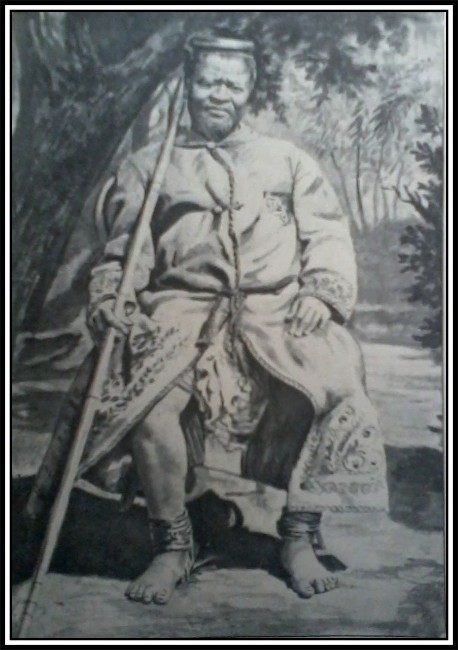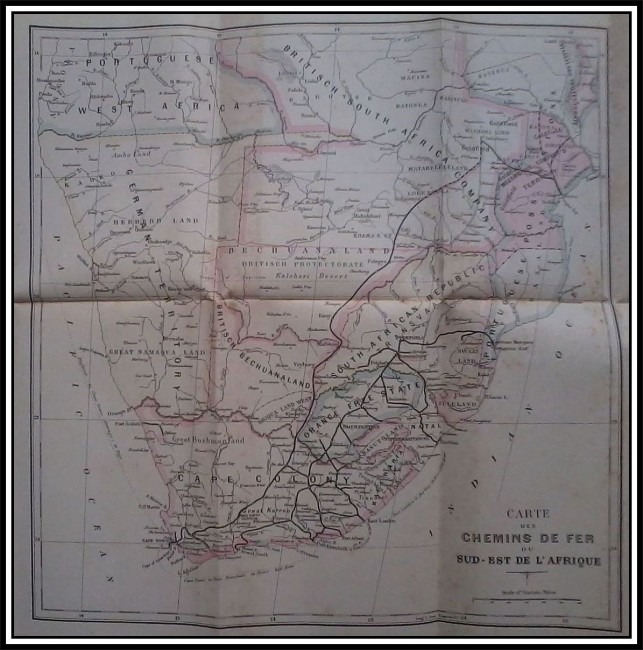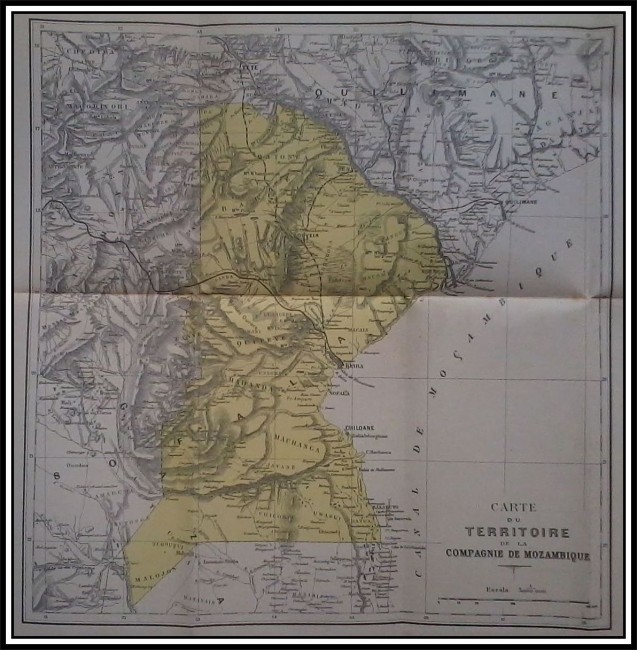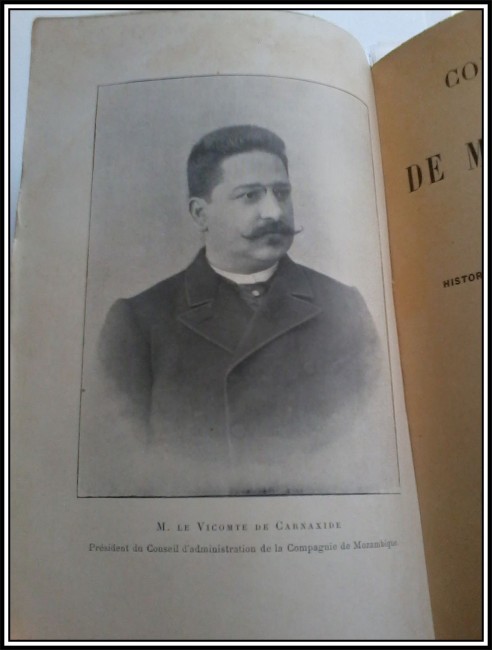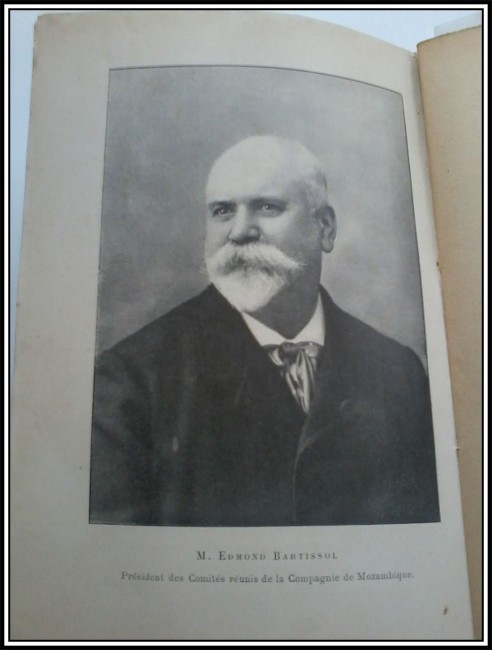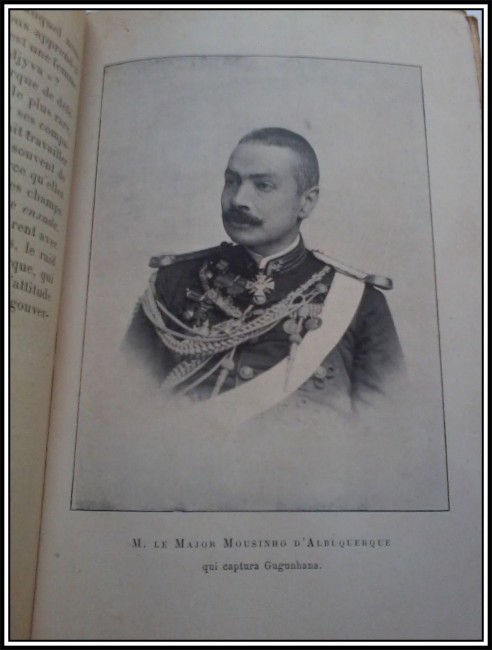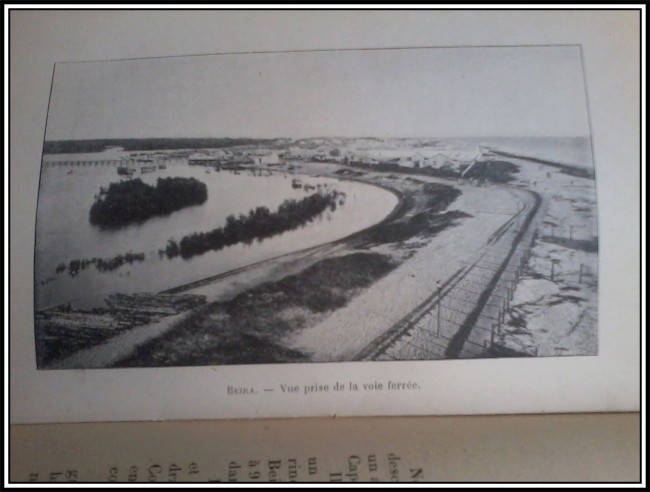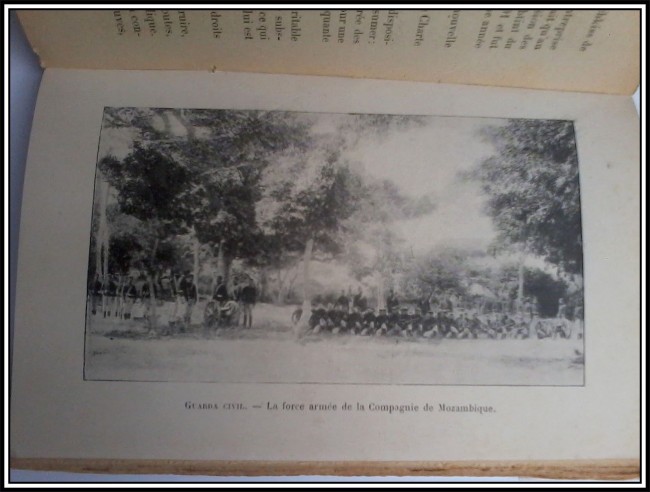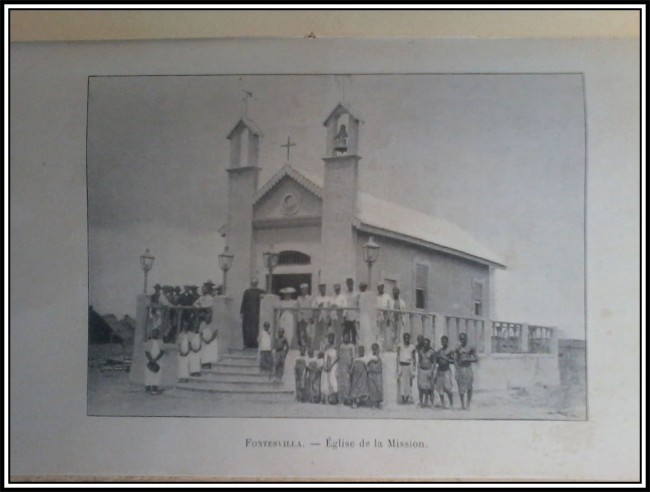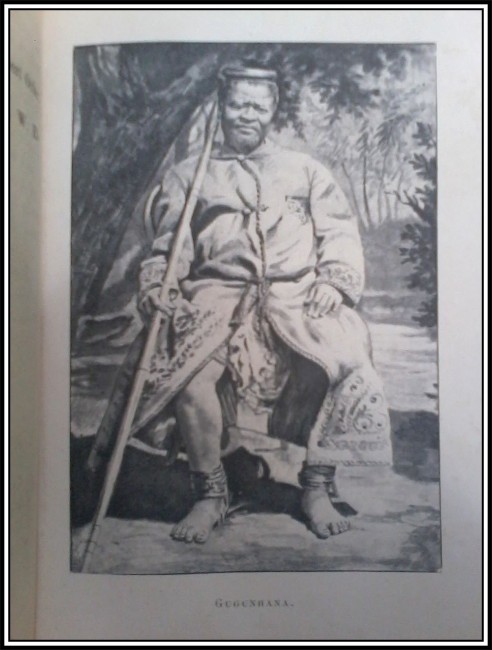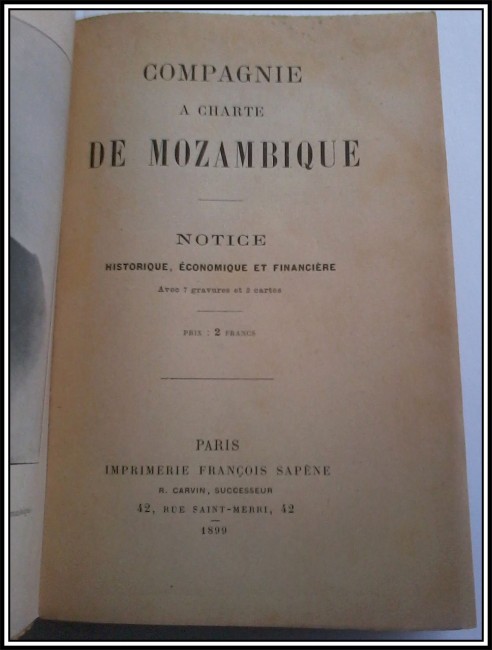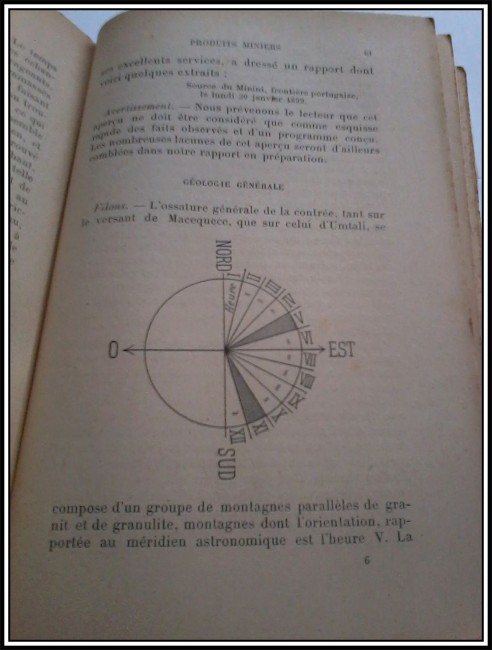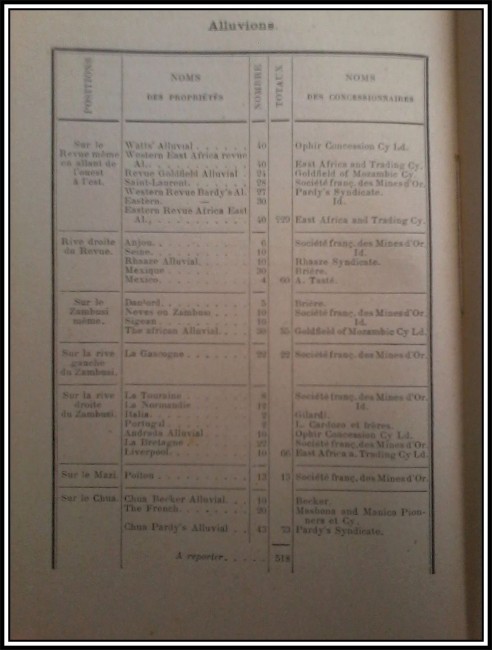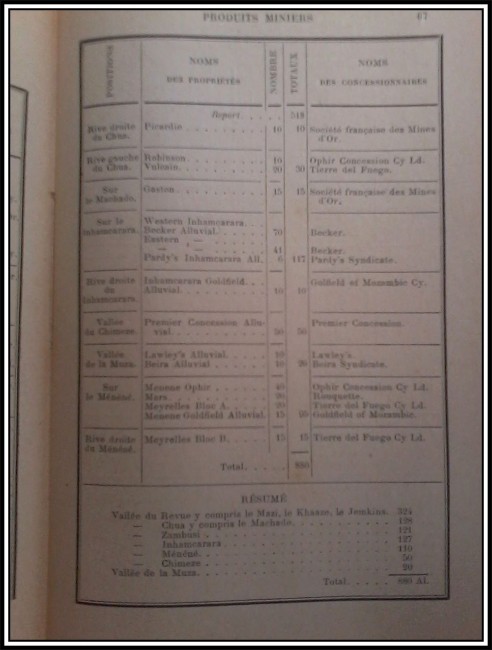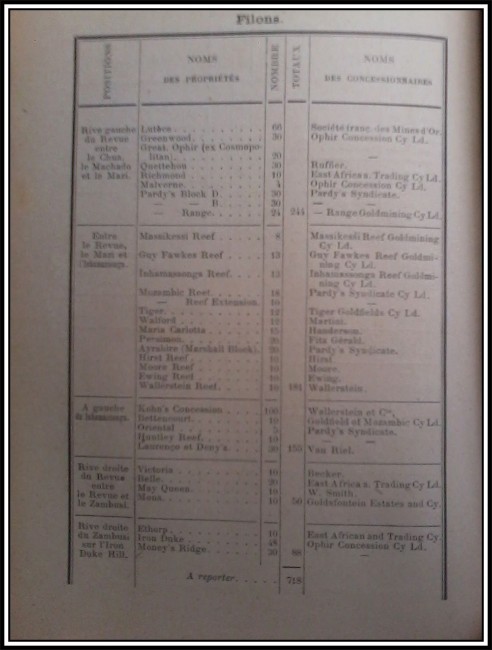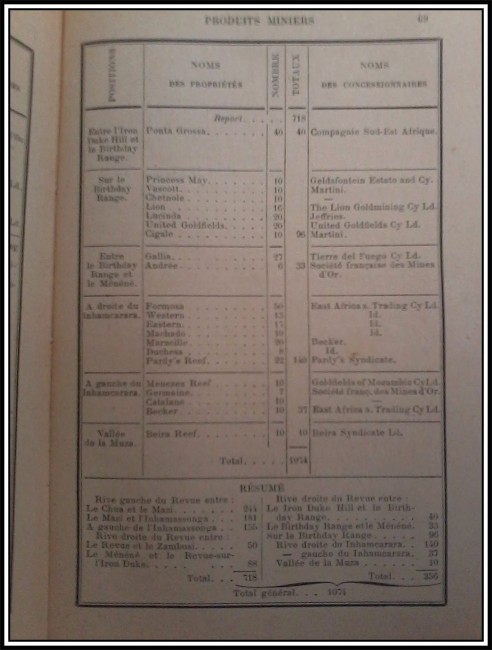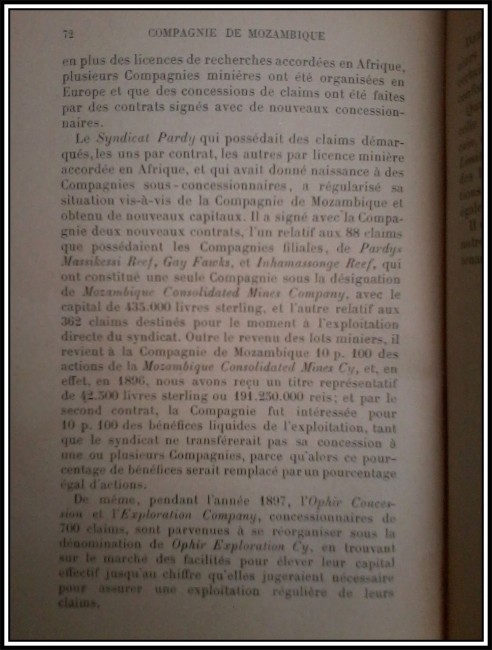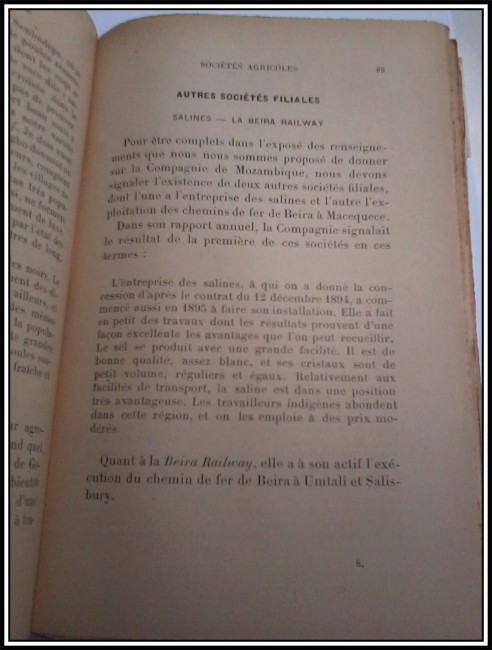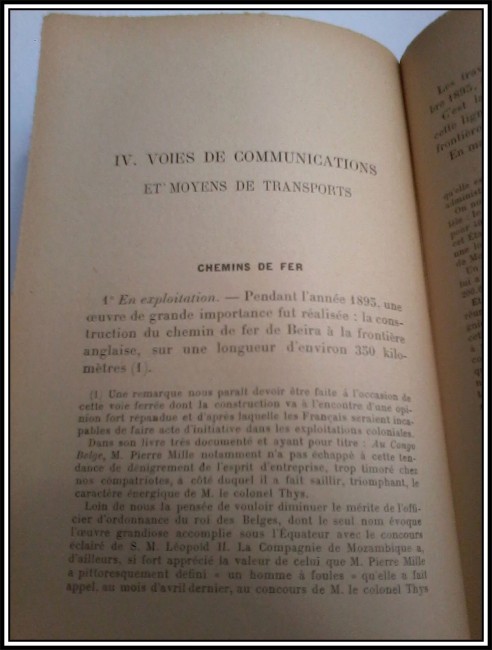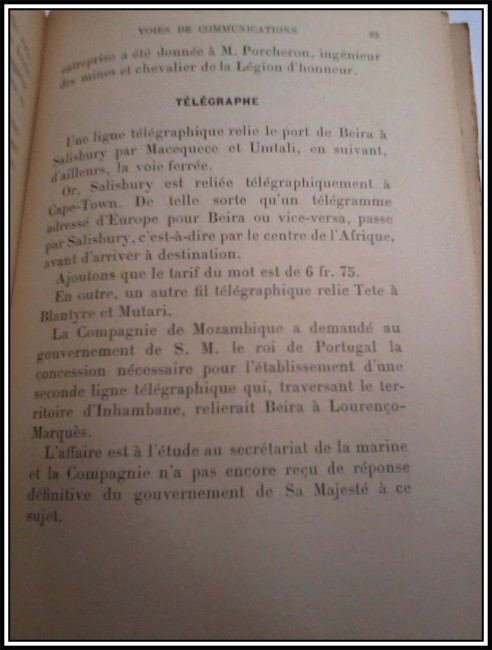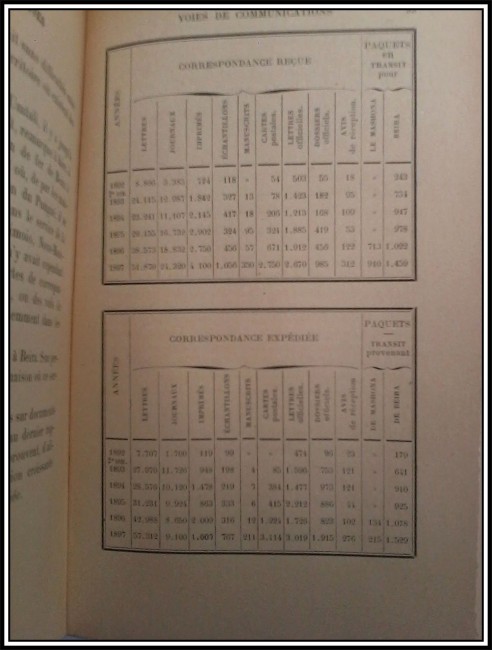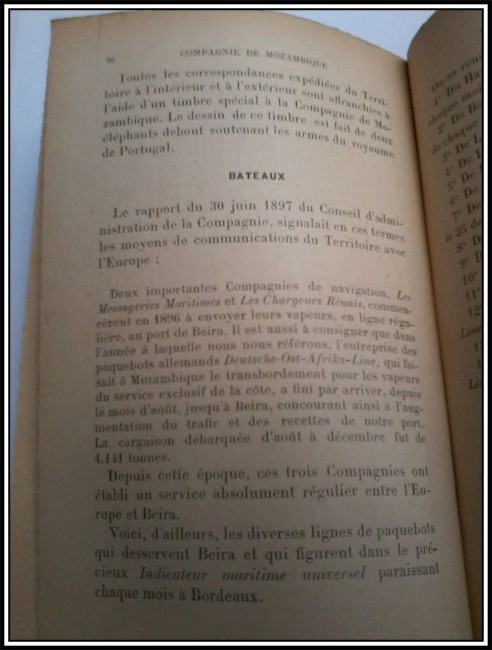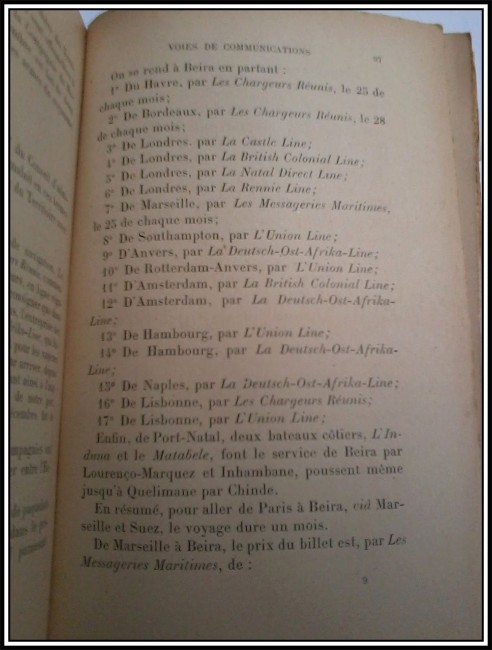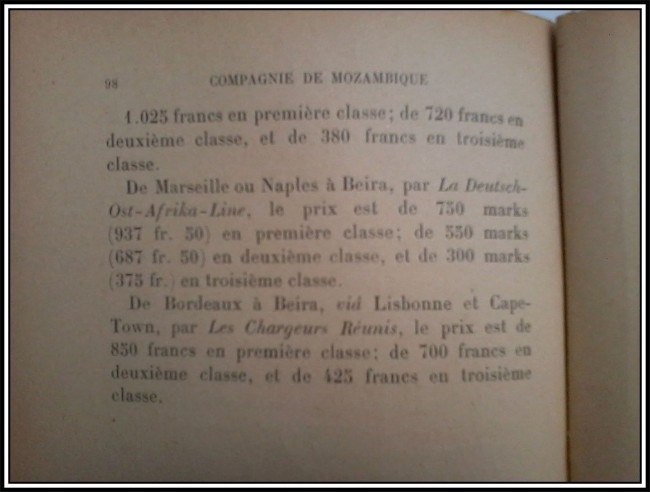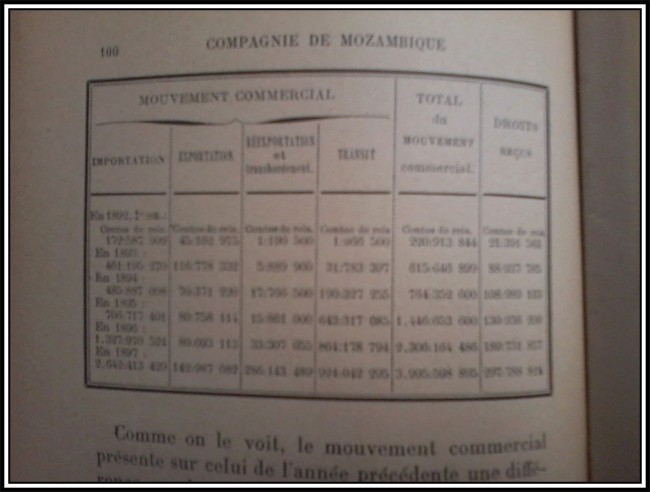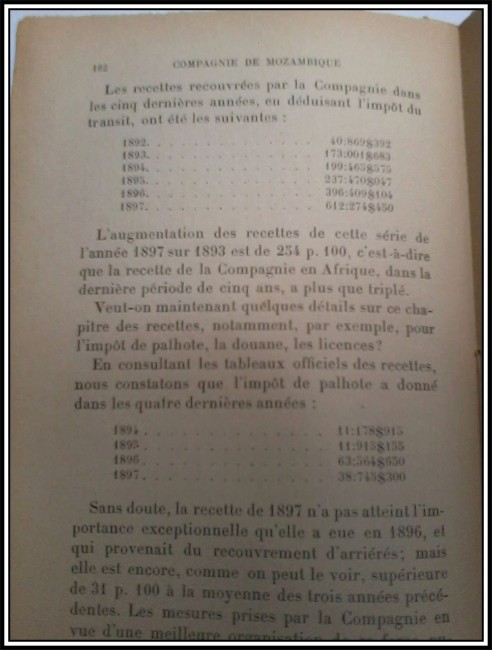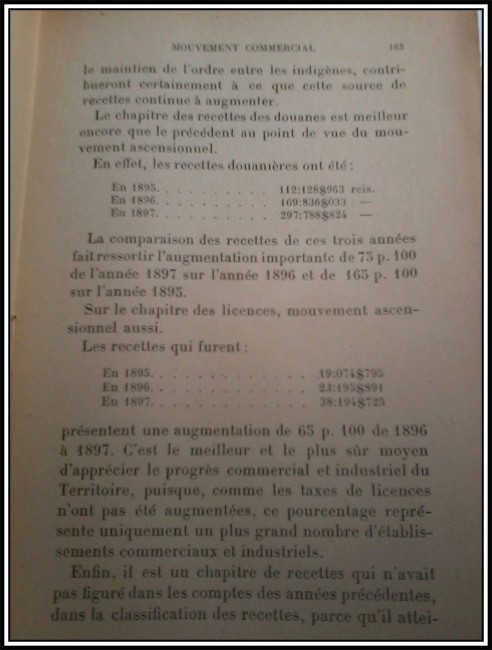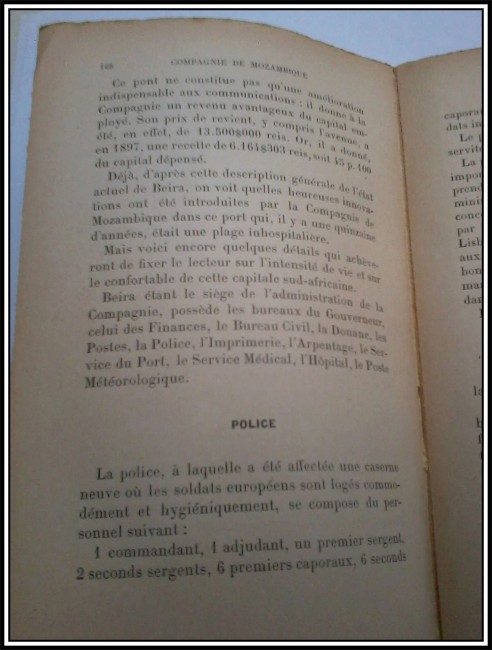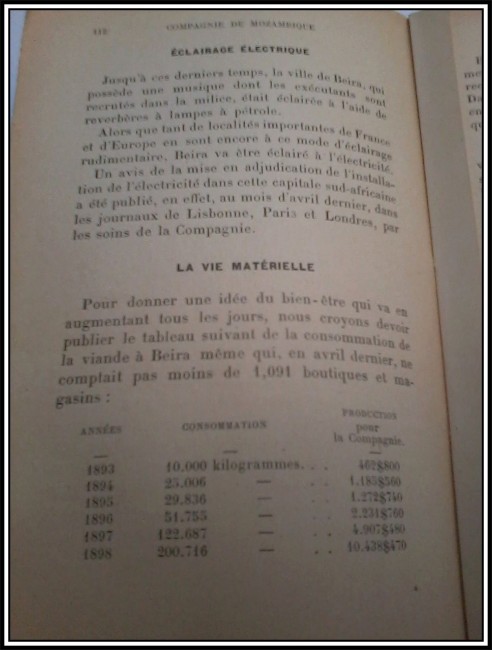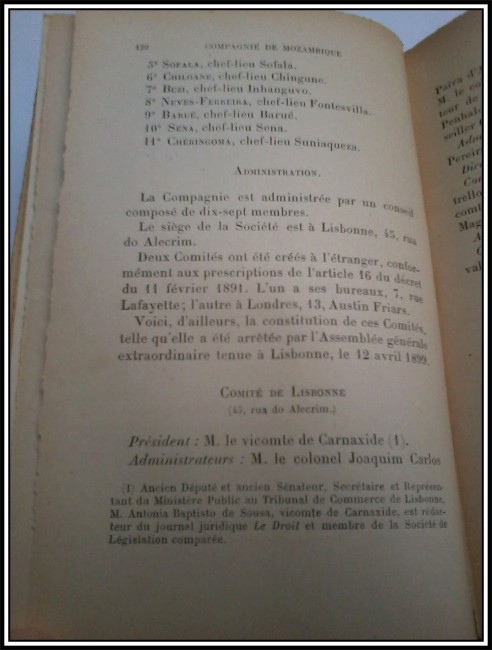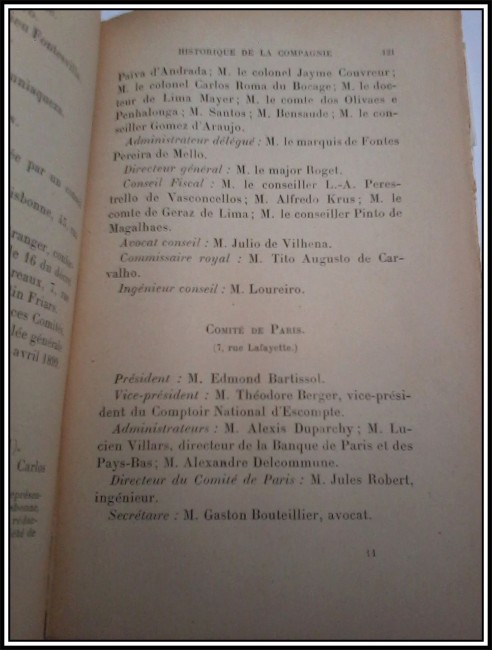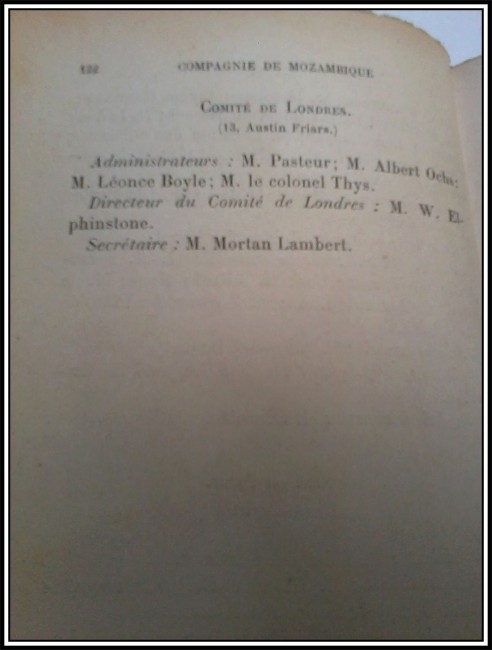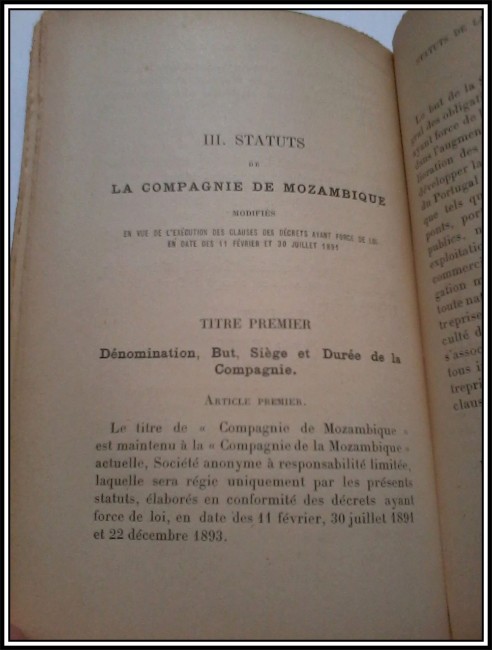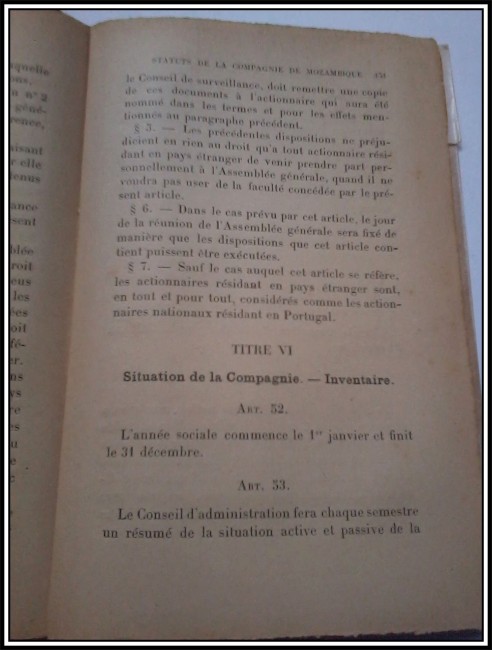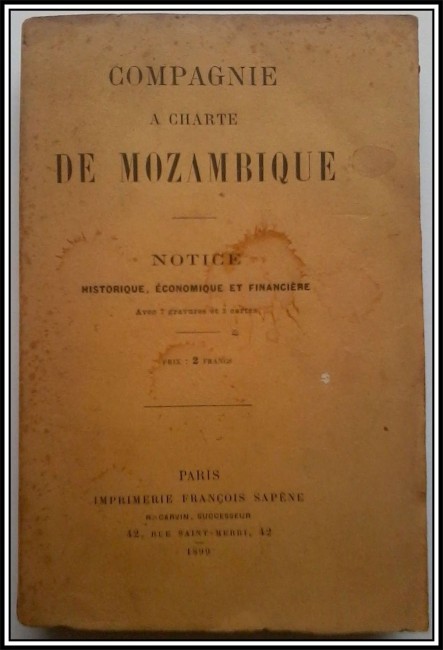"Compagnie a Charte de Mozambique: Notice Historique, Economique et Financiere. Avec 7 gravures et 2 cartes"; Softcovers; Collation complete: [10], 180 pages - with 7 photographs and 2 large folding maps (39 x 33 cm); Text in French; Condition: Softcovers a bit worn, with some wetting and age toning, but whole and tight. Text block and maps in very good condition, with some wetting and age toning.
This book contains 2 large folding maps - one of them shows the teritory of The Mozambique Company, the other shows the Railways of South Africa and Southeast Africa (including the routes from the Port of Cape Town, Port Elizabeth, Port Alfred, East London, Aliwal South, Durban, Lourenco Marques and Port of Beira to the Johannesburg, Pretoria and the other routes passes through Transvaal, Cape Colony, Natal, Orange Free State, Mozambique, Bechuanaland, etc.). This stunning work also contains many statistical informations, tables, price lists, pictures, bilances, tariffs, railroad directions with prices, etc.
Photographs shows:
- M. Le Vicomte de Carnaxide, Chairman of the Board of directors of the Mozambique Company
- M. Edmond Bartissol, President of the reunited Committees of the Mozambique Company
- M. Le Major Mousinho d'Albuqerque who captured Gugunhana
- Fontesvilla - Church of the Mission
- Beira - View from the railway line
- Guarda Civil - The armed force of the Mozambique Company
- Gugunhana
Contents:
I. Phisical Geography (Limits, Orography, Hydrography, Climate, Flora and Fauna)
II. History and Ethnography
- The Western Empire of Monomotapa
- The Native - Its morals - The role of the Woman
III. Economic situation
- Agricultural products
- Mining products:
1. Reports of M. Llamby
2. Reports of M. Razolus
3. Reports of M. Bourbon
4. List of claims
- Industrial and agricultural companies:
1. Agricultural colony of Manica
2. Farm of Buzi
3. Luabo Company
4. Southeast African Company
5. Gorongoza Company
6. Salines
7. The Beira Railway
- Lines of communication and vehicles:
1. Operating railway
2. Railway infrastructure
3. Telegraph
4. Postal Service
5. Charter
- Commercial movement:
1. Imports and exports
2. Monetary traffic
3. Recipes
- Beira:
1. Police
2. Printing
3. Health service
4. Dr. M. le Rist
5. Weather station
6. Electrical lighting
IV. Administrative organisation of the Mozambique Company
- History of the Mozambique Company:
1. Its current state
2. Social capital
3. Territorial constituencies
4. Committee of Lisbon
5. Committee of Paris
6. Committee of London
- Royal Charter of May 27, 1897
- Statutes of the Mozambique Company:
1. Denomination, Purpose, Headquarters and Duration of the Company
2. Social capital
3. Stocks and bonds
4. Board of Directors
5. Supervisory board
6. General Assembly
7. Situation of the Company
8. Inventory
9. Various provisions
- Secretariat of State of affairs of the Navy and Colonies, May 19, 1892 by (S. ) Francisco Jose Da Costa Silva
- General Directorate of Colonies
- Instructions which refers the Ordinance to this date
During the 19th century European powers, particularly the British and the French, became increasingly involved in the trade and politics of the region around the Portuguese East African territories. By the early 20th century the Portuguese had shifted the administration of much of Mozambique to large private companies - the Portuguese government decided to entrust the operation of the major part of the country for fifty years to three private companies which were given the powers of a State on a territory and the monopoly of its exploitation in exchange for a fee paid to Portugal. These 3 companies were: The Mozambique Company, the Zambezia Company and the Niassa Company, controlled and financed mostly by the British, which established railroad lines to their neighbouring colonies (South Africa and Rhodesia). Although slavery had been legally abolished in Mozambique, at the end of the 19th century the Chartered companies enacted a forced labor policy and supplied cheap – often forced – African labour to the mines and plantations of the nearby British colonies and South Africa. The chartered companies built roads and ports to bring their goods to market including a railroad linking present day Zimbabwe with the Mozambican port of Beira. The balance sheet of these companies was nevertheless disappointing. The defined policies aimed at the enrichment of the portuguese and European settlers metropolis, have tended to neglect the development of social infrastructure (clinics, schools) and the equipment for the country. An inter-state agreement was even concluded between Portugal and the Union of South Africa, in order to enable the recruitment of migrant workers Mozambicans in the mines in the Transvaal.
The Mozambique Company (Portuguese: Companhia de Moçambique) was a royal company operating in Portuguese Mozambique that had the concession of the lands in the Portuguese colony corresponding to the present provinces of Manica and Sofala in central Mozambique (135,000 km2).
The company was established the 11 February 1891 with a capital stock of about 5 million dollars obtained from financiers from Germany, the United Kingdom and South Africa. Isaacman and Isaacman report that the firm was capitalised at 40,000 pounds (not $5 M), and that British and French capital quickly predominated.
The concession was granted for a period of 50 years, during which the company could not only exploit the resources and existing manpower (partly through the chibalo system of forced labour) but also grant subconcessions. The company was granted the exclusive right to collect taxes, but was itself granted a 25-year tax exemption. In return the Portuguese state would receive 7.5% of the company's profits and 10% of the sold shares. The company was also required to settle 1,000 Portuguese families and provide education and public administration in its territory.
In practice, the company made only partial use of the prerogatives with which it had been bestowed; but this was balanced by the fact that it also met very few of its obligations. Having only limited capital, the company did little to develop the area, deriving most of its income from its ability to tax and its power to use conscripted labour on its plantations and for lease to adjacent estates. Resistance to the forced labour regime was a major cause of rebellions against the company which occurred in 1902 and 1917. Despite the company's obligation under its charter to provide forces to maintain law and order, it was unable to meet these crises, and on both occasions Portugal had to mount expensive interventions.
The Mozambique Company had its headquarters in Beira, where it controlled the public administration and the post offices. The company also founded a private bank, the Banco da Beira, which issued currency in pounds.
Because of its bad performance and because of the shift, under the Salazar regime, towards Portuguese control and away from international control of the economy, the company's concession was not renewed when it ran out in 1942. The Governor of Manica and Sofala commented: ''They did nothing to develop the potential wealth of this entire region, preferring to plunder it and alienate the natives.''
- Binding Condition: Very Good -
- Overall Condition: Very Good
- Size: 18,5 x 11,5 cm
- Sold By: The Antiquarian Book
- Contact Person: Mariana Deric
- Country: Croatia
- Email: [email protected]
- Telephone: 0917552163
- Preferred Payment Methods: Paypal (no additional charges); Bank (WIRE) transfer via IBAN/BIC/SWIFT
- Trade Associations: AA Approved


